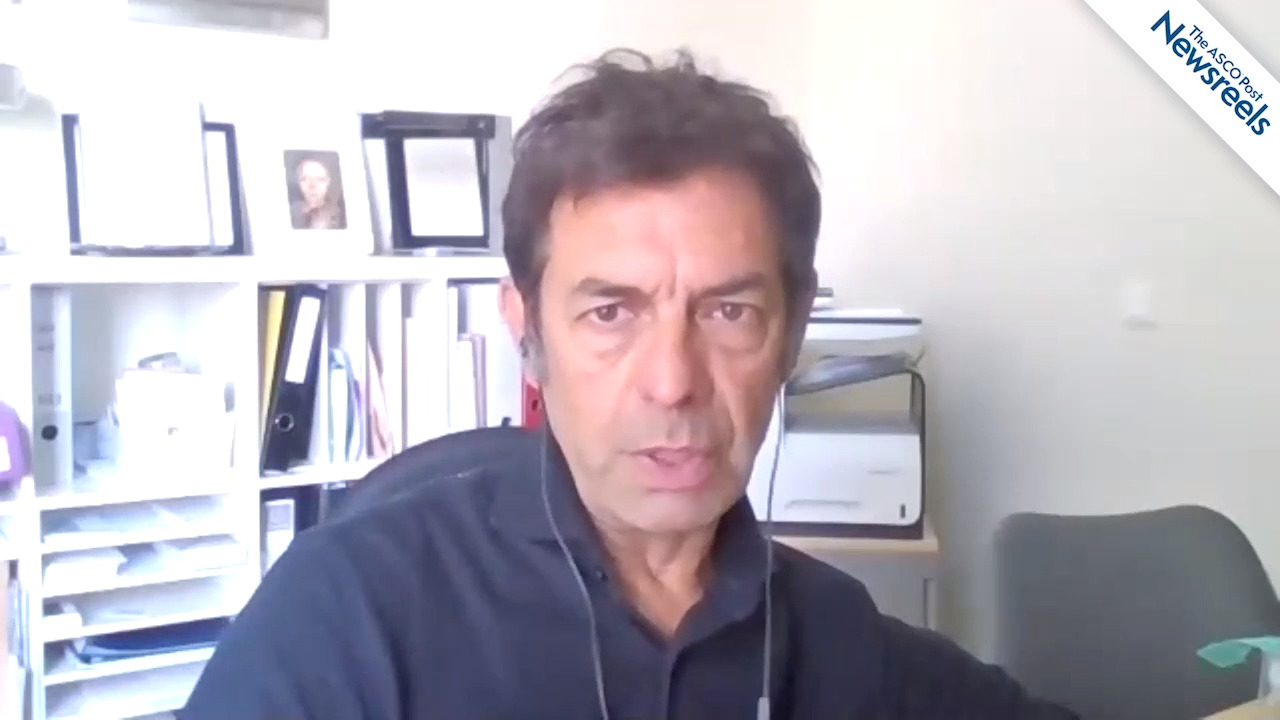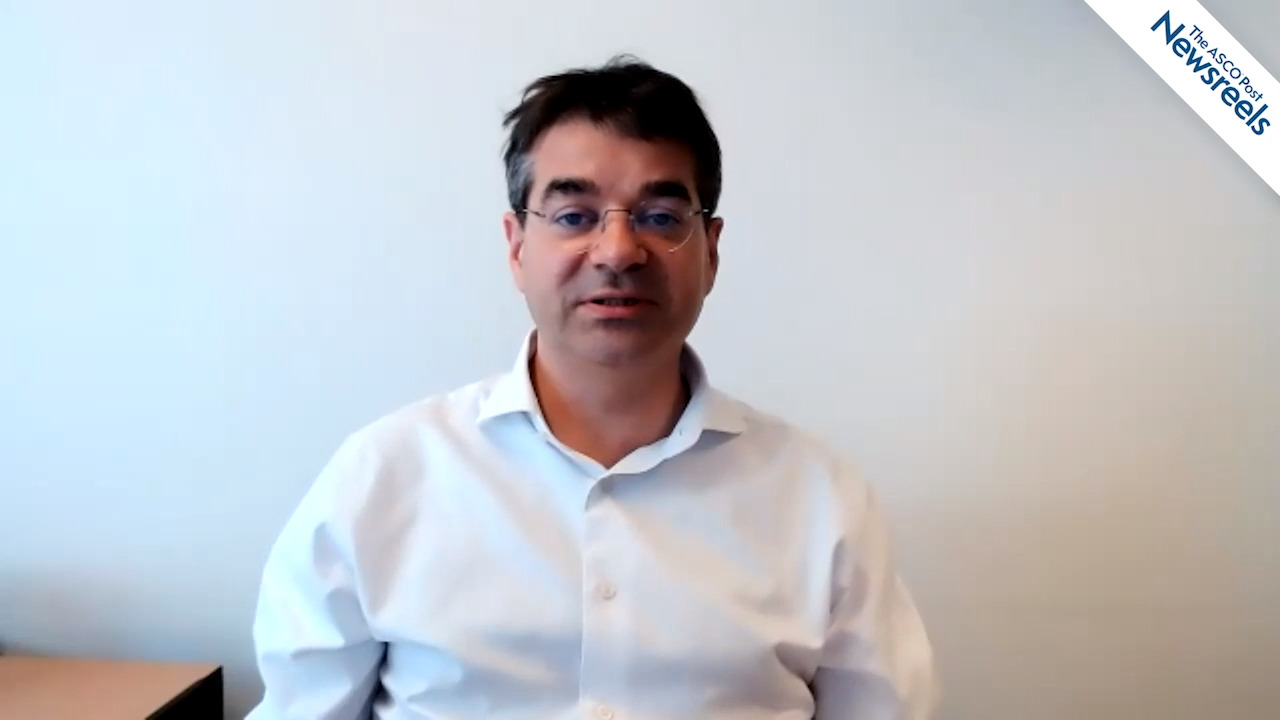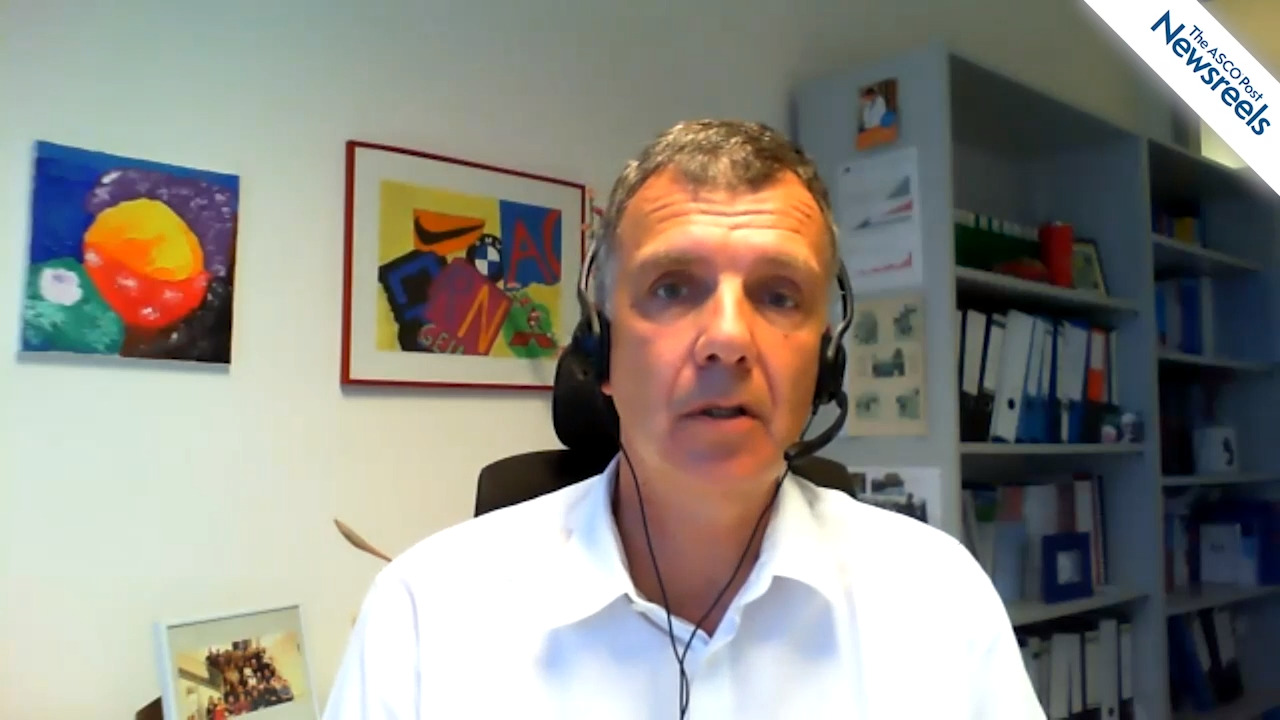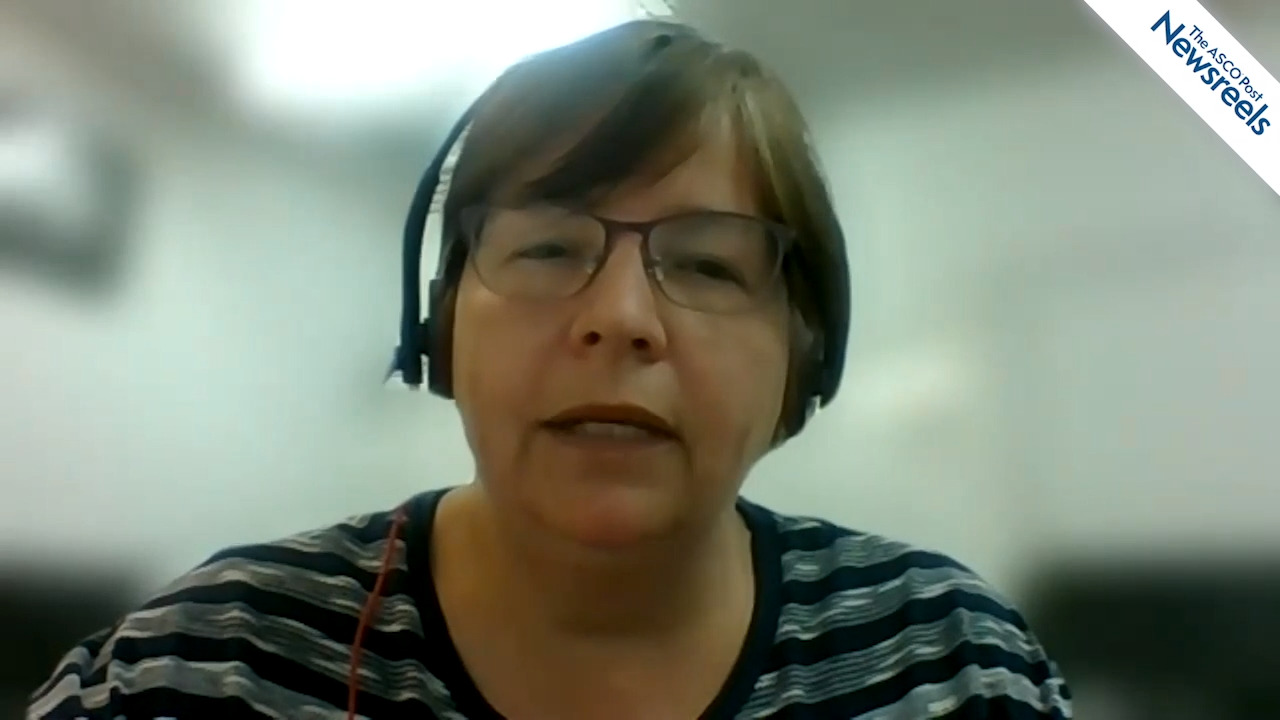Related Videos
Martin Kaiser, MD, on Myeloma and Plasma Cell Leukemia: Transplantation Plus Daratumumab/CVRD Therapy
Martin Kaiser, MD, of The Institute of Cancer Research and Royal Marsden Hospital, discusses findings from the UK OPTIMUM/MUKNINE trial on the depth of response and minimal residual disease status in patients with ultra-high–risk newly diagnosed multiple myeloma and plasma cell leukemia who were treated with augmented autologous transplant and daratumumab plus cyclophosphamide, bortezomib, lenalidomide, and dexamethasone (Abstract S181).
Philippe Moreau, MD, on Newly Diagnosed Multiple Myeloma: Daratumumab Maintenance vs Observation
Philippe Moreau, MD, of University Hospital Hôtel-Dieu, discusses findings from the CASSIOPEIA trial, Part 1, on daratumumab maintenance vs observation in patients with newly diagnosed multiple myeloma who have been treated with bortezomib, thalidomide, and dexamethasone, with or without daratumumab, and autologous stem cell transplantation (Abstract S180).
Arnon P. Kater, MD, PhD, on CLL: Fixed-Duration Ibrutinib and Venetoclax vs Chlorambucil Plus Obinutuzumab
Arnon P. Kater, MD, PhD, of the University of Amsterdam, discusses a primary analysis of the phase III GLOW study, which, for the first time, compared the efficacy and safety of fixed-duration ibrutinib plus venetoclax with chlorambucil plus obinutuzumab for first-line treatment of older patients with chronic lymphocytic leukemia (LB1902).
Martin H. Dreyling, MD, PhD, on Follicular Lymphoma: Safety and Efficacy of Tisagenlecleucel
Martin H. Dreyling, MD, PhD, of University Hospital Munich Grosshadern Klinikum, discusses phase II results from the ELARA trial, which suggests tisagenlecleucel may be a promising immunotherapy for adults with relapsed or refractory follicular lymphoma (Abstract S210).
Claire Harrison, MD, DM, on Myelofibrosis: Fedratinib as First-Line Therapy After Prior Ruxolitinib
Claire Harrison, MD, of Guy’s and St. Thomas’ Hospital, discusses survival results from the JAKARTA and JAKARTA2 trials, which showed that fedratinib, an oral JAK2 inhibitor, significantly improved progression-free survival vs placebo as a first-line treatment for patients with myelofibrosis (Abstract S203).





